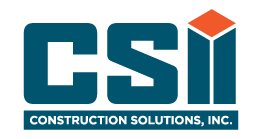Ask a registered professional engineer or architect
You wouldn’t call a podiatrist if you were experiencing gastro-intestinal issues. Similarly, if you own a condominium or other residential building, you can’t just call in a home inspector to look at your high-rise, multistory building. Knowing whom to call is important to keeping your coastal residential condominium as safe as possible. Commercial buildings and multifamily buildings are special because there are a lot of complicated and dynamic components to that kind of building, which is why a condominium structural engineering firm like Construction Solutions makes the best partner.
Inspecting buildings for defects involves an overall process. It begins with contacting a registered professional engineer or architect. You should partner with an engineering firm that specializes in forensics, testing (like water testing and component and assembly testing), and writing thorough reports.
- Visual: The engineers should come out and do a cursory review. A term used in this initial process is “external envelope,” which involves examining the outside of the building and making an initial assessment.
- Further investigation: This occurs after the initial visual assessment if the engineer finds an issue.
- Report: A professional engineering firm writes a report detailing any findings and recommendations for fixing the issue(s).
- Recommendations: The firm shares its recommendations for contractors or partners to use when making the necessary repairs.
While it may save money in the short-term, you can’t rely on a handyman or a board member who “used to be in construction” and assures everyone that everything looks fine. In the long run, this kind of mistake can and will cost you more money and headaches, and could even result in the complete collapse of your building. A handyman doesn’t know all the key, specialized components that a trained professional does. When you place too much faith in a general handyman to fix surface issues as they arise, you are guilty of neglect, however unintentional it may be, and it can have dire and far-reaching consequences.
Listen to our free webinar to learn about some of the consequences of ignoring the need for annual professional inspections.
